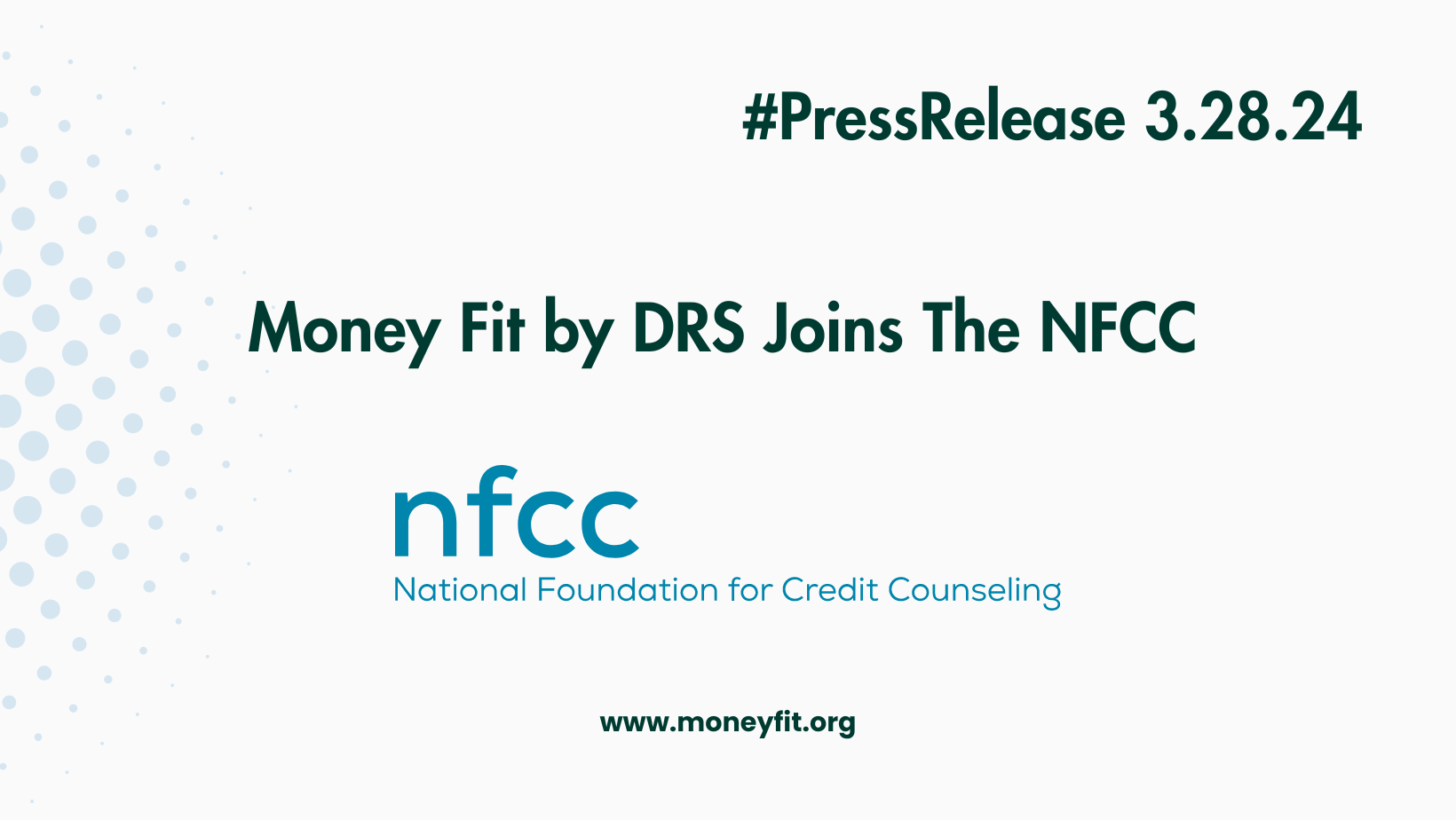Free Credit
Report Review
Follow the steps below in order to schedule your free credit report review with a Certified Credit Counselor. The process is simple and the knowledge you gain could help you identify ways to improve your credit score and start building a stronger financial future.


Schedule Your Free Credit Report Review in Only 3 Steps!

Why You Should Get Your Free Credit Report Review
American consumers have had the right to view their credit reports from the three major consumer reporting agencies, or CRAs (Equifax, Experian, TransUnion) every twelve months since the FACT Act went into effect in 2003.
Unfortunately, having access to your report does not make it any easier to understand or use to your benefit.
To Help You Understand Your Credit Report
- We provide this service at no-cost as part of our financial education charter.
- You’ll receive expert advice & information on how to improve your score to meet your financial goals.
- We’ll help you access and understand what’s on your report.
- Your personal information and consultation are 100% confidential.
- Don’t pay for information and help that you can receive from experts for free.
To understand the benefit of a credit report analysis, it is important to differentiate between a credit report and a credit score. The report (also known as a credit file, credit history, or credit record) lists all of the accounts you have opened or used in the past seven to ten years.
The score (also known as your credit rating) is similar to a school grade except that is represents the likely risk you pose as a borrower of defaulting on a loan or paying as agreed. Potential lenders care about your score since they can use it much more efficiently than having to go through your credit report line by line.
Credit scores are based entirely on information found on your credit report. This explains the importance of checking your credit report regularly and ensuring it contains accurate information.

Who Looks At Your Credit Report
You likely feel like your credit has become either a major tool or a major drag when it comes to your financial success, and with good reason. Over just the past two to three decades, credit scores have been adopted into decision-making processes that go far beyond qualifying for a credit card.
Virtually all consumers know that if you want to qualify for a credit card, the potential card provider will make its decision based largely upon your credit rating. Additionally, most also understand that mortgage lenders, car loan providers, banks, and credit unions also use your credit score when deciding to approve a loan.
In addition to these obvious credit score viewers, many other decision-makers are looking at your credit score:
- More and more potential employers include a credit report review as part of their hiring process and background check.
- Property management companies routinely include your credit score in the application process to live in their apartments.
- Cell phone service providers will run a credit check during your application process before finalizing any monthly plan they offer. Pre-paid cell phone plans do not require a credit check.
- Utility companies regularly include a credit check in order to determine whether or not to require a deposit. If you have a good credit rating, you will likely not need to pay a deposit.
- Homeowner Insurance companies also use your credit-based insurance score to help set your monthly premium.
- If you apply for life insurance on your own (not through a group-based or company-based provider), the insurer will also likely use your credit-based insurance score as a factor in setting your policy premium.
- Collection agencies that have acquired any old debts you owe will not only list that debt on your credit history with the consumer reporting agencies (as long as it has not been seven years since the last account status change), they will likely check your report periodically to decide the best time to contact you for pursuing their collection activities. Additionally, they may also find updated contact information.
- Investment brokers will check your credit if you want to trade on margin and need to set up an account with them. Trading on margin means you purchase stock with borrowed money, so this makes sense.
- Parents who apply for a student for their children’s education (a PLUS loan) should expect the US Department of Education lender to check their credit.
- If you are a student and seek private student loans outside of the US Department of Education options, the lender will check your credit before approving your application. If your credit does not meet the lenders’ standards, they will likely require you to have a co-signer.
- Many government agencies already have permission to check your credit history, particularly those involved with child support and public assistance benefits. Additionally, the courts and law enforcement may access your credit in cases where you have been sued by previous creditors and have a judgment on your report. If you worry that the government is checking your credit already and without your knowledge, you can take some comfort in the fact that the consumer reporting agencies are for-profit companies and not government bureaus. Any time anyone checks your credit, government or not, that activity will show up in the inquiries section of your credit report.
- If you give your permission to any organization to check your credit report for a legitimate business purpose, that organization will also have access to your credit report.
Finally, you should check your own credit regularly. Exercise your right granted by the 2003 FACT Act to pull your credit report through each of the three major consumer reporting agencies every 12 months. Go to www.AnnualCreditReport.com or call 877-322-8228 to request your report(s) today.
How does a credit report review work?
MoneyFit by DRS has long provided free credit report analysis as a nonprofit to consumers across the country. The process can take as little as 20 minutes or last as long as two or three one-hour sessions. During normal business hours (10:00 am – 6:30 pm Eastern / 7:00 am – 3:30 pm Pacific), you can choose to meet with a certified counselor by phone or via web conferencing. At any time, you may correspond with our certified counselors via email, although we recommend that you remove any personally identifying information from attachments and the body of your email (e.g. name, social security number, current address).


For a credit report review by phone:
- Set an appointment with one of our certified counselors by calling 1(800)432 0310.
- Pull and print your credit report(s) ahead of time from AnnualCreditReport.com.
- Review your credit report(s) section-by-section and line-by-line with your counselor on the phone.
- Share a copy of your credit report with your Money Fit counselor.

For a credit report review by email:
- Email our certified counselors at [email protected] to begin the process.
- Advise them of your plans to have your credit report analyzed via email.
- Identify a day or week when you plan to forward your credit report by email.
- Pull and print your credit report(s) ahead of time from AnnualCreditReport.com
- Remove sensitive personal information (full name, social security number, current address) with a black marker.
- Submit your edited report as a PDF (using a scanner or your smartphone) to our certified counselor using:
- the online portal your counselor will provide you
- the email address provided to you by your counselor
- Your counselor will provide an analysis of your report via email and may email you questions, request clarifications, and identify items of concern for your attention.

For a credit report review by web conference:
- Set an appointment with one of our certified counselors by calling 1(800)432 0310 or via email at [email protected].
- Our certified counselor will provide you with a link to the web conference and a phone number to call at the time of your appointment.
- Pull and print your credit report(s) ahead of time from AnnualCreditReport.com
- At the time of your appointment, pull up your credit report on your screen.
- Log in to the web conference (your computer or phone will ask you to download a small, one-time application to access Webex). This should take less than one minute.
- Call the phone number provided.
- The counselor will instruct you on how to share your screen so that both of you can view your report at the same time.
- Review your credit report(s) section-by-section and line-by-line with your counselor online.
Frequently asked questions:
The following questions are the most common questions we are asked about regarding Credit Reports.
We invite any adult with a credit report to take advantage of this free offer. You may also consider an analysis of a dependent minor’s credit report if you have secured one.
Since the FACT Act went into effect in 2004, American adults have had the right to view their credit report at no cost from each of the three major consumer reporting agencies (Equifax, Experian, and TransUnion). Here are the simple steps: Request your free report(s) online at AnnualCreditReport.com.
You will provide your name, social security number, and current mailing address (and previous address if you have lived at your current address for less than 2 years)
You will then be directed to each of the CRAs to get your credit reports. Each CRA will ask you four questions to confirm your identity. These multiple-choice questions are based upon information available on your credit report. Do not hesitate to answer, “None of the above” if you do not see the correct answer or if the questions are not applicable.
It is common for a CRA to deny your online request. However, you should then attempt to get your report by phone or by mail.
When successfully pulled, you will have access to view and print your report immediately and have up to 30 days to dispute the accuracy of any information.
Request your free report(s) by phone at toll-free 877-322-8228.
The recorded instructions will inform you of the requirements, but you should have your full name, social security number, and current mailing address (and possibly previous address) ready to provide.
Request your free report(s) by mail by printing and completing the form available here and sending in a stamped, #10 envelope to Annual Credit Report Request Service, PO Box 105281, Atlanta GA 30348-5281.
Although each consumer reporting agency formats your credit report differently, you will generally find four sections on your report:
Identifying Information: The section usually includes your current and former names and aliases, current and former addresses, a list of your current and former employers, and your current and former phone numbers. You may also find your social security – or at least its last four digits – in this section.
In case you are wondering, this information comes almost exclusively from loan applications you have submitted in the past. If there is a misspelling of your name or an incorrect address or phone number, it likely stems from miskeying the information or other errors in transcribing applications.
Nothing in this section has any effect whatsoever on your credit rating.
Public records: This section includes any Chapter 7 bankruptcies you have filed in the last 10 years, any Chapter 13 bankruptcies you have filed in the past 7 years, any judgments (default or contested) against you, foreclosures from the past 7 years, and any tax liens filed against you.
A bankruptcy will have the largest negative effect on your credit. Estimates range from 25% to more than 35% of your credit score can disappear due to bankruptcy. Foreclosure and short-sales run a close second at 25% to 30%.
Tradelines: This section makes up the heart of your credit report. It will list all lines of credit and accounts you have opened or used in the past seven to ten years. These include credit cards, loans, and collection accounts.
Your trade lines will list the creditor names and phone number, account balances, dates the accounts were opened, whether the accounts are still open or now closed, and payment history.
The payment history will show whether a payment was made and whether it was late. If it was made late, it will show 30, 60, 90, 120+ or 150+ days late. Most credit reports show updates to three years of your payment history.
If a collection agency has sold your account, you may see both the previous and the current collection agency listed. The previous agency account should show a $0 balance with an indication that it has been transferred. Collection lines should also indicate the original creditor of the account, such as a cell phone service provider, utility company, or medical office.
Depending upon the CRA, this section may also be divided into “Potentially Negative Accounts” and “Accounts in Good Standing” to help you easily see which accounts have late payments, are in collections, or otherwise have negative activity on them.
Inquiries: You will find this section at the end of your credit report. An inquiry is a credit “pull” for any reason. CRAs divide inquiries into two or three sections. “Hard” or “Active” inquiries show the date and the creditor who pulled your credit report in response to your request for a new account. This will include applications for credit cards, store cards, car, and home loans, and possibly even utility, Internet provider, and cell phone accounts.
These types of inquiries have a very small and short-term effect on your credit rating. FICO has indicated that each inquiry may lower your score by as much as 1% or 2%, if at all. They remain on your report for two years but only affect your rating for one year, though after three or four months, their effect is negligible.
“Soft,” “Promotional” and “Account Review” inquiries have no effect on your credit rating. These inquiries indicate who is looking at your report for marketing or account update purposes. You may opt-out of such inquiries for two or five years by calling (888) 567-8688. To opt-out permanently, you can begin the process at OptOutPreScreen.com but must submit a signed form by email.
The sole purpose of building your credit is to minimize interest and payments in the future. With mediocre credit, you might still qualify for a home loan, but your interest rate will be much higher than the rate someone with good credit will pay, meaning you will pay much more over the term of the loan.
Your credit rating is based entirely on information on your credit report. Consequently, it is important to pull your credit report and ensure that the information it contains is accurate. Studies show that between 5% and 25% of all credit reports contain an error so serious that it would block the consumer from qualifying for a loan he or she would otherwise qualify for without the error.
Additionally, you want to make sure no one has used your identity to open fraudulent accounts in your name. If you pull your credit and see accounts that you do not recognize, working with the CRA and the creditor sooner than later will minimize the impact of the fraud.
Your credit report is a history of all your credit-related activities (borrowing, repaying, missing payments, court judgments, and bankruptcies, etc.) over the past seven to ten years. Since your credit report serves as the basis for your credit score, you should ensure that the information on your report is accurate and up-to-date.
Credit Report Review Blog Posts
Find important answers, advice, and analysis to a wide range of personal finance topics in our Money Motivations blog.










